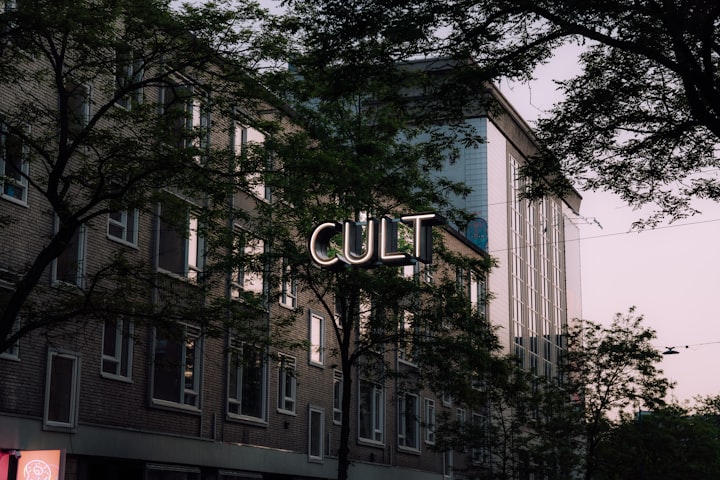Why we need to understand cults better
A Deep Dive into the Urgent Need for Cult Literacy

Thank you; I have consistently been drawn to community, actively participating in community building for causes I believe in. My journey has been one of a lifelong learner, seeker, and a total joiner—from Brownies to drama clubs to summer camps. I was nurtured by my fantastic hippie parents who instilled in me the importance of contributing to a better world while always being prepared for sing-alongs with accompanying snacks. Known for my remarkable organizational skills and often described as someone with significant "cruise director" energy, my background took an unexpected turn when I found myself part of a cult for a prolonged period of twelve years.
This particular cult, Nexium, initially presented itself as a personal and professional development program with a seemingly altruistic mission to positively impact the world on an individual basis. However, beneath this facade lurked a high-control group, employing tactics such as coercion, obligation, gaslighting, and control. My journey within Nexium involved a slow build of these manipulative forces over a decade, masquerading as a toxic workplace but, in reality, constituting a full-fledged cult.
Despite the facade, I ascended through the ranks within Nexium, becoming one of the company's star recruiters. I felt a sense of fulfillment, thinking I had found my chosen family and a place where I belonged. Little did I know that my association with Nexium would take a dark turn during my involvement in a secret offshoot, a boot camp for women that promised empowerment but, in reality, served as a means for the cult's founder, Keith Raniere, to brand women and coerce them into sexual acts.
The revelation of this branding, with the realization that it bore Keith Raniere's initials, served as a wake-up call for me. This realization prompted my departure from the cult, but the aftermath revealed the extent of criminal activities within Nexium, ranging from blackmail and forced labor to child pornography and sex trafficking.
Subsequently, I joined forces with fellow ex-members to expose Nexium's crimes, leading to an investigation by the southern district of New York, a dramatic arrest in Mexico, a six-week trial, and ultimately, a 120-year prison sentence for Keith Raniere. This victory, while significant, came with the acknowledgment that Keith Raniere had become one of the most dangerous cult leaders in history.
My post-cult journey involved healing and a commitment to rectify the harm I unknowingly contributed to. One aspect of my healing involves sharing my story openly, as featured by HBO, to educate others about cults and the importance of seeking safely. Six years after leaving Nexium, I reflect on my experience, acknowledging the trauma and tragedy I endured.
Today, my purpose extends beyond sharing personal resilience and trauma recovery. I am here to introduce the concept of cult literacy, emphasizing the need for individuals to be aware of and navigate potential cultic groups. Cults, in the contemporary landscape, do not always resemble the stereotypical images of shaved heads, goats' blood, or ritualistic robes. Instead, they thrive by presenting themselves as appealing and beneficial communities, exploiting human desires for connection, meaning, and purpose.
Cult literacy, therefore, becomes a critical skill to discern healthy groups from those with malignant intentions. Red flags indicating potential cultic abuse include an assumption of neediness, excessive costs, loaded language, rumors of cult associations or legal issues, and claims of having definitive answers to life's mysteries. Green flags, on the other hand, signal a safer group, allowing questions, permitting exits without consequences, and maintaining a healthy level of commitment.
In conclusion, I advocate for a vigilant approach to joining groups or communities, recognizing that nobody is immune to cultic influence. The tools, programs, and communities we engage with should enhance rather than define our lives. Seeking wisely in the human quest for knowledge and connection becomes imperative to avoid the pitfalls of falling into the clutches of a cultic nightmare.





Comments
There are no comments for this story
Be the first to respond and start the conversation.